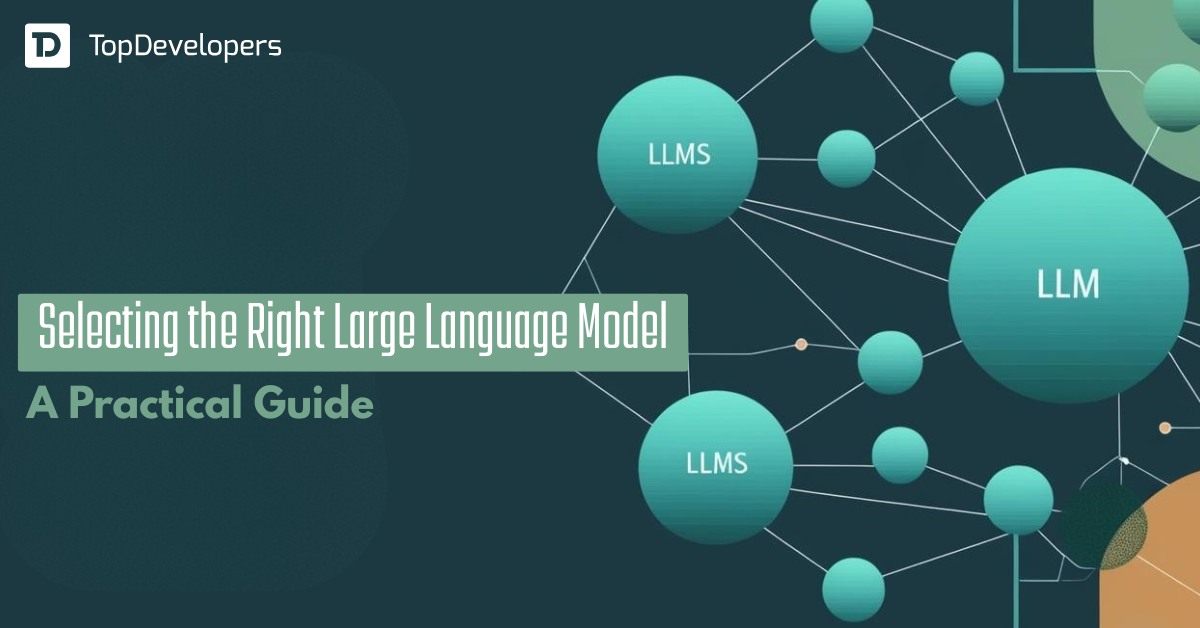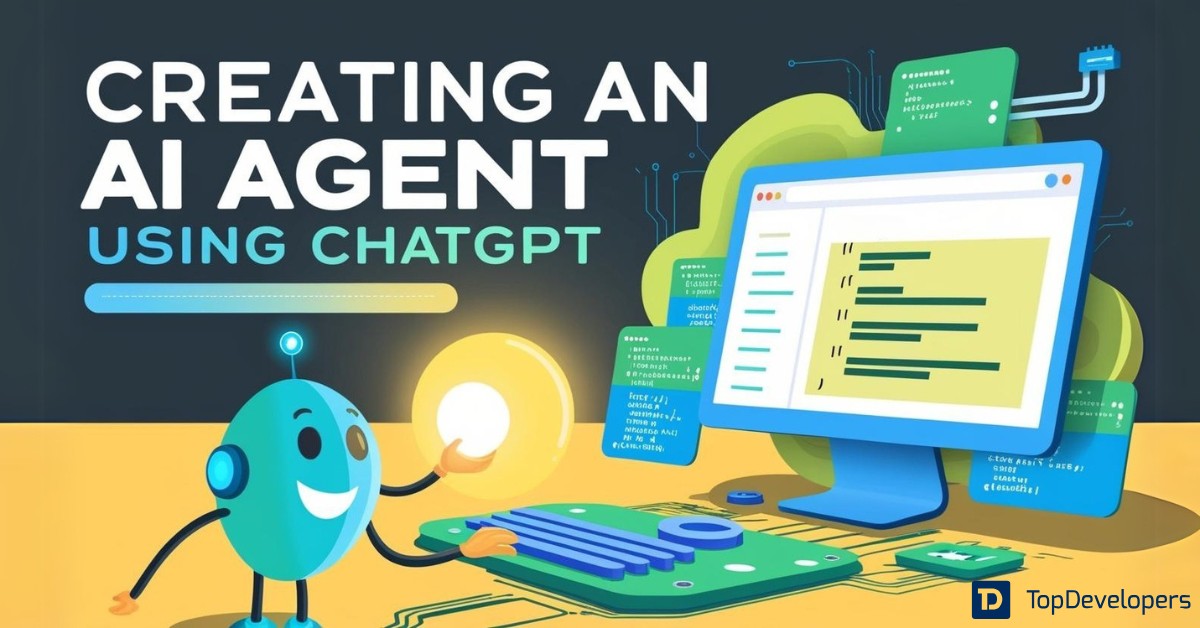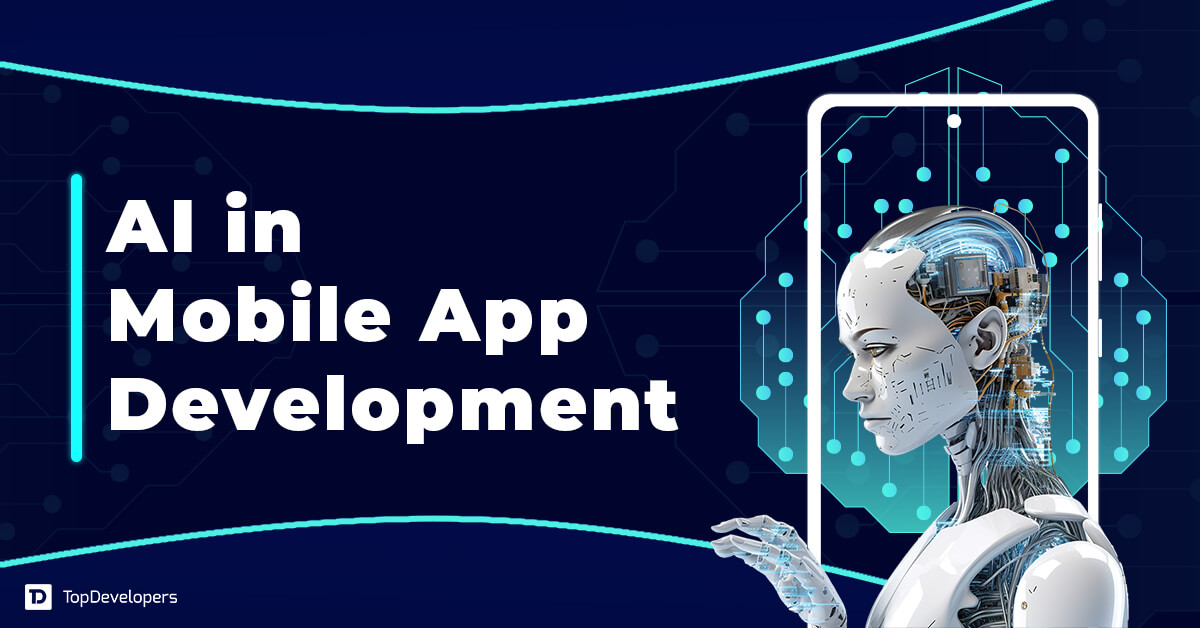
AI in MVP development is transforming how startups and enterprises bring their ideas to life. A study by Leaware highlights that 67% of startups attribute their success to the strategic use of MVPs. By leveraging AI, companies can streamline processes, reduce costs, and enhance product quality, allowing them to test their concepts with minimal resources.
One of the biggest challenges in MVP development is the time-consuming nature of market research, prototyping, coding, and testing. AI-powered tools can automate repetitive tasks, analyze vast amounts of data, and even assist in software development, helping businesses accelerate time-to-market. Whether it is AI-driven market analysis, code generation, or automated testing, AI enables businesses to focus on innovation while reducing manual effort.
With AI playing a pivotal role in modern software development, understanding how to integrate it into your MVP strategy is crucial. This guide explores step-by-step methods to leverage AI for faster MVP development, ensuring startups can create scalable, high-quality products in less time. From AI-driven design tools to automated testing platforms, we will cover practical approaches to help you build your MVP efficiently.
Table of Contents
Understanding AI in MVP Development
AI is no longer just a futuristic concept; it has become an essential tool in software development, helping businesses build products faster and more efficiently. In MVP development, AI assists in multiple stages, from idea validation to coding, testing, and even deployment. By integrating AI-powered tools, startups can optimize workflows, reduce human errors, and enhance decision-making.
One of the most significant advantages of AI in MVP development is its ability to process large amounts of data quickly. AI-driven analytics tools help businesses understand market trends, customer preferences, and competitor strategies, allowing them to refine their MVP concepts before investing significant resources. This data-driven approach ensures that companies are building products that align with real-world demand.
Moreover, AI enhances the automation of development processes. AI-assisted coding platforms such as GitHub Copilot and OpenAI Codex help developers write code faster, while low-code/no-code AI platforms enable non-technical founders to create functional prototypes without deep programming knowledge. AI also speeds up UI/UX design, automated testing, and performance optimization, making it an invaluable asset for building a robust MVP.
By incorporating AI at every stage of MVP development, businesses can minimize risks, accelerate production, and deliver high-quality solutions in record time. In the next section, we will break down a step-by-step approach to using AI in MVP development, ensuring an efficient and streamlined process.
Step-by-Step Guide to Using AI for MVP Development
AI in MVP development has become a powerful enabler for startups and businesses looking to bring their Minimum Viable Product (MVP) to market faster while maintaining efficiency and cost-effectiveness. From idea validation to development, testing, and scaling, AI-driven tools can streamline workflows, reduce manual effort, and optimize decision-making. This section provides a detailed step-by-step guide to leveraging AI for efficient MVP development.
Market Research & Idea Validation with AI
Before building an MVP, startups must validate their ideas and understand market demand. AI-driven tools help analyze industry trends, customer preferences, and competitor strategies, reducing the guesswork involved in product development.
How AI Helps in Market Research
- AI-powered analytics platforms (e.g., Google Trends, Semrush, ChatGPT, Bard) extract insights from customer feedback, social media, and online forums.
- Natural Language Processing (NLP) tools analyze customer sentiment and predict market demand.
- Predictive analytics software (e.g., Crimson Hexagon, MonkeyLearn) identifies emerging trends, helping businesses develop an MVP aligned with consumer needs.
Example: AI-driven tools like Brandwatch help businesses analyze social media conversations to gauge customer interest in a new product idea.
AI-Powered UI/UX Design & Prototyping
A well-designed user interface (UI) and seamless user experience (UX) are essential for MVP success. AI accelerates the design phase by automating wireframing, prototyping, and usability testing.
AI Tools for UI/UX Design
- AI-driven wireframing tools (e.g., Uizard, Adobe Sensei, Framer AI) generate mockups in seconds.
- Heatmap analysis tools (e.g., Hotjar, Crazy Egg) use AI to track user behavior and improve UI/UX.
- Automated usability testing ensures that minimum viable product designs are intuitive before launch.
Example: Uizard enables non-designers to create app wireframes quickly using AI-powered design suggestions.
AI-Assisted Code Generation & Development
AI in Minimum Viable Product development helps engineers write and optimize code faster. AI-powered code generation, debugging, and automation tools significantly reduce development time.
AI Tools for Faster Development
- AI-assisted coding platforms (e.g., GitHub Copilot, OpenAI Codex, Tabnine) help developers auto-complete and optimize code.
- No-code/low-code platforms (e.g., Bubble, Adalo, OutSystems) allow non-technical founders to build functional MVPs without deep programming knowledge.
- AI-powered backend solutions (e.g., Firebase AI, AWS Amplify) automate infrastructure setup.
Example: GitHub Copilot assists developers by suggesting code snippets, reducing the time spent writing repetitive functions.
AI-Driven Testing & Debugging
Quality assurance (QA) is crucial in MVP development. AI-powered testing tools automate bug detection, performance testing, and security checks, ensuring a robust MVP before launch.
AI Tools for Automated Testing
- AI-based functional testing (e.g., Testim, Applitools) detects bugs and optimizes app performance.
- AI-driven security testing (e.g., Veracode, Checkmarx) identifies vulnerabilities.
- Automated performance testing ensures that the MVP handles real-world usage scenarios.
Example: Testim uses AI to generate test cases, helping developers identify issues early and accelerate bug fixing.
AI for Deployment & Scaling
Once a Minimum Viable Product is ready, AI optimizes deployment, monitoring, and scaling to ensure seamless user experience and performance.
AI Tools for Deployment & Scaling
- AI-driven DevOps automation (e.g., AWS AI, Google Cloud AI) streamlines cloud deployment.
- AI-powered monitoring tools (e.g., Datadog, New Relic AI) track system performance in real-time.
- Predictive analytics helps in scaling infrastructure based on user demand.
Example: Google Cloud AI automatically allocates resources based on traffic predictions, ensuring MVP scalability.
AI in MVP development is revolutionizing the way startups build and launch products. By leveraging AI-powered market research, design automation, code generation, testing, and scaling tools, businesses can significantly reduce time-to-market, lower costs, and improve product quality.
As AI continues to evolve, integrating the right AI-driven solutions into your MVP development process can provide a competitive edge, ensuring faster execution and higher success rates.
Real-World Examples & Case Studies of AI in MVP Development
Understanding the impact of AI in MVP development is easier when we look at real-world applications. Many startups and enterprises have successfully leveraged AI to accelerate their Minimum Viable Product (MVP) development while reducing costs and improving efficiency. Below are some case studies and success stories showcasing the power of AI in MVP development.
Case Study 1: Airbnb – AI for Enhanced User Experience
Challenge
When Airbnb started, one of its biggest challenges was ensuring high-quality user-generated images on the platform. Low-quality images were affecting user engagement and booking rates.
AI-Powered Solution
- Airbnb integrated AI-based image enhancement tools that automatically improved listing photos.
- Machine learning algorithms analyze user preferences to offer personalized recommendations.
Result
- Increased user engagement and conversion rates.
- AI-driven personalization improved search results, enhancing the customer experience.
Takeaway
AI can significantly improve an MVP’s user experience, leading to higher adoption and engagement rates.
Case Study 2: Notion – AI-Powered Productivity Tool
Challenge
Notion, an all-in-one productivity tool, needed to differentiate itself from competitors and provide an intuitive user experience for content organization.
AI-Powered Solution
- Notion integrated AI-based natural language processing (NLP) for improved search functionality.
- AI-driven suggestions and automation helped users structure their data more efficiently.
Result
- The MVP quickly gained traction, leading to rapid user adoption.
- AI-enhanced features allowed Notion to scale and refine its product based on user behavior.
Takeaway
AI can make an MVP more intuitive, personalized, and user-friendly, giving startups a competitive edge.
Case Study 3: Grammarly – AI-Driven Writing Assistant
Challenge
Grammarly needed to develop an AI-based writing assistant that could provide real-time grammar and style suggestions while keeping the processing time low.
AI-Powered Solution
- Integrated machine learning models to analyze text for grammar, punctuation, and clarity.
- Used deep learning algorithms to personalize suggestions based on user writing styles.
Result
- Grammarly’s MVP gained millions of users within months.
- AI-powered features led to a subscription-based revenue model, making it a profitable SaaS business.
Takeaway
AI-driven automation and personalization can increase an MVP’s value and attract long-term users.
How Startups Can Replicate These Successes
Startups looking to integrate AI in MVP development can take inspiration from these case studies and follow these strategies:
- Identify key AI-driven features that enhance user experience.
- Use AI-powered analytics to track early user behavior and iterate quickly.
- Leverage automation to streamline MVP development and reduce operational costs.
- Focus on personalization to increase user retention and engagement.
By learning from these real-world examples, startups can avoid common pitfalls and implement AI effectively in their MVP strategy.
Challenges & Limitations of AI in MVP Development
While AI in MVP development offers numerous benefits, it also comes with challenges. Startups must understand these limitations to make informed decisions and implement AI responsibly.
High Initial Investment in AI Tools
Many AI-driven platforms require a significant investment in infrastructure, APIs, and model training. Startups with limited budgets may struggle to afford these advanced solutions.
Solution
- Start with affordable AI tools like OpenAI’s GPT, Google’s Vertex AI, or open-source frameworks (e.g., TensorFlow, PyTorch).
- Utilize AI-as-a-Service platforms to reduce upfront costs.
Data Dependency and Quality Issues
AI systems rely on high-quality data for accurate predictions and automation. Poor, biased, or insufficient data can negatively affect the MVP’s reliability.
Solution
- Use diverse, structured datasets for AI model training.
- Implement data-cleaning AI tools to enhance accuracy.
Ethical and Compliance Risks
AI-driven MVPs must comply with data privacy laws like GDPR, CCPA, and HIPAA. AI models can also introduce bias, leading to ethical concerns.
Solution
- Follow ethical AI guidelines and ensure transparency in AI decisions.
- Conduct regular audits to detect and mitigate AI biases.
Over-Reliance on AI & Reduced Human Oversight
While AI speeds up MVP development, excessive reliance can reduce human creativity and strategic thinking.
Solution
- Use AI to assist, not replace human expertise.
- Maintain human oversight in critical areas like UX design and customer feedback analysis.
AI Integration Complexity
Integrating AI models into an MVP can be challenging, requiring skilled developers and technical expertise.
Solution
- Utilize low-code/no-code AI tools like Bubble and Adalo for simplified integration.
- Partner with AI development experts if in-house expertise is lacking.
AI Scalability Issues
AI models must scale efficiently as user demand increases. Poor optimization can result in high latency and performance bottlenecks.
Solution
- Use cloud-based AI solutions like AWS AI or Google Cloud AI for scalability.
- Optimize models using techniques like quantization and model pruning to enhance efficiency.
Despite these challenges, AI in MVP development remains a game-changer. By addressing these limitations, startups can create a robust, AI-driven MVP that is scalable, cost-effective, and user-friendly.
Conclusion
AI in MVP development has revolutionized how startups and businesses build and launch products. By integrating AI-driven applications, companies can accelerate development, reduce costs, and optimize decision-making, ultimately delivering a high-quality Minimum Viable Product (MVP) faster.
AI enhances every stage of MVP development, from market research and prototyping to coding, testing, and scaling. It enables automation, improves efficiency, and provides data-driven insights, ensuring that businesses make informed product decisions. With tools like AI-powered analytics, automated design platforms, AI-assisted coding, and machine learning-based testing, startups can streamline the entire development lifecycle.
However, despite its benefits, AI also presents challenges such as high initial costs, data dependency, ethical concerns, and integration complexities. Businesses must address these limitations by choosing the right AI tools, ensuring ethical AI practices, and balancing AI automation with human expertise.
For startups that lack in-house AI expertise, partnering with top AI development companies can be a strategic move. These companies offer specialized services that help businesses seamlessly integrate AI into their MVP development process, ensuring that AI-powered solutions align with business goals and market needs.
As AI continues to evolve, its role in MVP development will only grow stronger. Startups that strategically adopt AI technologies will gain a competitive edge, launching products more efficiently while staying ahead of market trends. Those who leverage AI effectively will not only build faster but also create more innovative, scalable, and user-centric MVPs.
 Gillian Harper
| Feb 3, 2025
Gillian Harper
| Feb 3, 2025
A professionally engaged blogger, an entertainer, dancer, tech critic, movie buff and a quick learner with an impressive personality! I work as a Senior Process Specialist at Topdevelopers.co as I can readily solve business problems by analyzing the overall process. I’m also good at building a better rapport with people!


